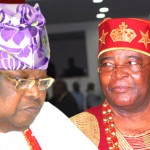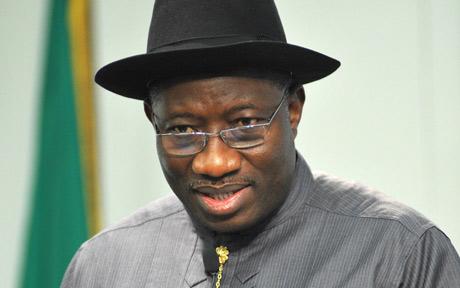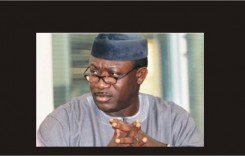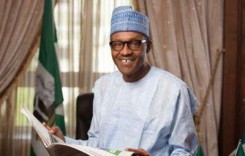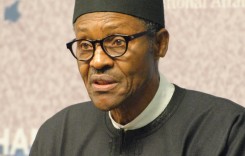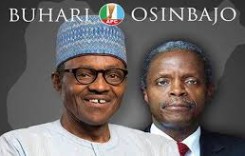The Alake of Egbaland, Oba Michael Adedotun Gbadebo, has described the comment by the Awujale of Ijebuland, Oba Sikiru Adetona, on his ranking of Yoruba Obas as uncivil.
The Alake said this on Monday in reaction to the Awujale’s comment last week at the launch of an endowment for a professorial chair in honour of Oba Adetona at the Olabisi Onabanjo University Ago-Iwoye.
Reacting to Alake’s ranking of the big five traditional rulers in Yorubaland which placed Awujale as the fifth behind Alake, Awujale said Alake is a Junior Oba in Yorubaland.
Speaking through his Adviser on Media Affairs, Chief Lai Labode, at a news conference in his palace in Abeokuta, the Ogun State capital, Oba Gbadebo said: “The Alake’s reply was predicated on the self-indulgence of our respected monarch to churn out outright historical falsehoods in the presence of knowledgeable Nigerians.”
In a speech entitled: “Putting the record straight: Egba’s response to Awujale’s allegations,” Oba Gbadebo said there was the need to set the records straight, hence the news conference.
He said the intention of the Egbas was not to whip up any controversy or demean anybody, but to educate the public by stating the fact of history and for record purposes.
The Alake said his ranking above the Awujale was based on Lord Lugard’s Grading and Salaries of Obas in the Southern Province.
The document provided showed that the two First Class monarchs were on different salary scales. While the Alake was receiving £2,250, the Awujale was paid £1,700.
The source of the information was given as Page 4, paragraph 4, Government of the Federal Republic of Nigeria, Federal Ministry of Information National Archives, Files Nos. 33044, CSO 26, letter SP 11828120, Secretary’s Office, Southern Province, Enugu, January 31, 1938.
On the allegation by the Awujale that the Alake quoted wrongly from a 1903 government gazette, which was a newspaper publication, the statement said: “Alake quoted government Gazette, Colony of Lagos, Saturday, February 20,1903, page 100, paragraph 16. Gazette is a subsidiary legislation, which has force of law and, therefore, a public document available for verification.”
On the allegation that Awujale made several calls to Alake to confirm if Alake actually made the statement on Yoruba Obas ranking and that the Oba of Lagos, Oba Rilwan Akiolu, contacted the Alake on the same issue and he denied it, the statement said: “Both the Awujale and Oba of Lagos actually called Alake on the ranking of Yoruba Obas.
“Alake responded that his ranking was supported by documentary evidence and he, therefore, stands by his position.”
On the allegation of the authority that categorised the Yoruba traditional rulers, the statement said: “The then Ooni of Ife did at the Central Native Council meeting, which was chaired by the Governor-General, His Excellency, Sir William Macgregor, at Governor House, Lagos in 1937. “Those in attendance included the Ooni of Ife, Alaafin of Oyo, Oba of Benin, Alake of Abeokuta and Awujale of Ijebu-Ode.”
Reacting to the allegation that the Alake was a junior Chief in Egbaland and that he fled to Ibadan under the territory of Alaafin, after which he was sacked by Ijebu army and that the Alake fled to Abeokuta where he met the Osile, the Olowu and the Agura and Olubara, who had previously settled in Abeokuta before him, the statement said: “Twenty Alakes had reigned in the Egba forest prior to the founding of Abeokuta in 1830.
“There was no Alake that fled to or took refuge in Ibadan.
“The Egbas arrived and settled in Abeokuta mainly in 1830.
“The first Alake in Abeokuta was installed in 1854, followed by Olowu in 1855, the Agura in 1870 and the Osile in 1897.”
The Alake further explained that he had been ranked above the Awujale long before independence.
Ola Gbadebo said: “By the Egba United Government Proclamation of February 1, 1898, approved by the then governor of Lagos, the Egba cabinet was as follows: The Alake was President, the Osile was Minister of Justice, the Agura was Minister of Communication and Works and the Olowu was Minister for Finance.”
On the allegation that Alake was a junior Oba like those under the Awujale in Ijebuland and that the Alake’s control since he arrived Abeokuta in 1830 was restricted to Ake section of Abeokuta, the statement read: “Just as there were the Awujale of Ijebu-Ode, the Akarigbo of Sagamu, the Soun of Ogbomoso, the Olowo of Owo, Oba of Lagos and so on, there was the title Alake of Abeokuta.
“Alake is only comparable with the Awujale only now that they are both paramount rulers and rotational chairmen of Ogun State Traditional Council of Obas.
“Historically speaking, Alake was higher by salary differentials paid by colonial government.
“Lord Lugard’s grading and salaries of Obas in the Southern provinces: First class (the two monarchs were among First class Obas), Alake of Abeokuta used to be paid £2,250 and Awujale of Ijebu-Ode used to receive £1,700.”
On the allegation that Awujale and the immediate-past Alake, Oba Oyebade Lipede, sat with former President, Chief Olusegun Obasanjo, on the issue at Aso Rock, the statement said: “Awujale did not state the outcome of the meeting.
“We do not want to insinuate that if it were to his advantage, he would have mentioned it.”
On the Awujale’s advice to Alake, having referred to him as a young and inexperienced traditional ruler that needed to receive education from Chief Obasanjo, the statement replied: “Although this concluding part of Awujale’s speech is uncalled for, it is neither civil nor decent.
“We do not intend to defile the sacred Yoruba traditional institution.
“We, therefore, refrain from trading insults with a highly regarded monarch of his status.”
The statement said the Egbas were not unmindful of the agitation over the Awujale’s speech by the people on social media.
It also appreciated the favourable and sympathetic reactions from social and conventional media.


